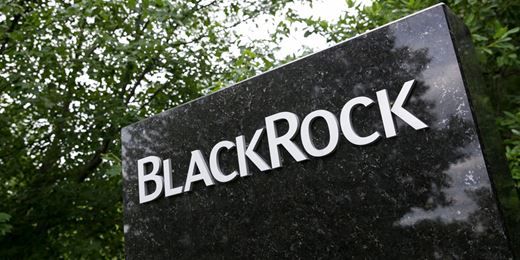The world’s largest asset managers BlackRock and Vanguard have been criticised for “continuing to undermine global investor efforts to promote responsible climate action” at large carbon-emitting companies – “even as they publicly tout their commitment to addressing the climate crisis”.
A review titled Climate in the Boardroom by non-profit organisation Majority Action has been published almost a week after BlackRock chief executive Larry Fink told delegates at the Morningstar Investment Conference that his company had seen more inflows into sustainable exchange-traded funds (ETFs) in the first six months of 2020 than in the whole of last year.
Fink suggested the Covid-19 pandemic had been a major driver behind these flows, adding: “The existential health risk of Covid has only made climate risk and environmental, social and governance (ESG) an even larger component.”
He went on to say that more than 70% of BlackRock’s 5,600 active portfolios were now “fully ESG-integrated” and the group was committed to integrating ESG metrics into all of its portfolios by the end of this year.
In January, meanwhile, in his annual letter to clients, Fink had promised BlackRock would start taking a tougher line with companies on climate change. He said BlackRock would require companies to provide a plan for operating within the Paris Agreement’s goal to limit global warming to two degrees, adding that “we will be increasingly disposed to vote against management when companies have not made sufficient progress”.
‘Climate-critical resolutions’
Findings of Climate in the Boardroom, however, indicated BlackRock and Vanguard voted “overwhelmingly” against 36 “climate-critical resolutions” reviewed in the report for this year, with BlackRock supporting just three and Vanguard four (see graph below).

“At least 15 of these critical climate votes would have received majority support of voting shareholders if these two largest asset managers had voted in favour of them,” the report added (see graph below).

Majority Action also said BlackRock had voted against 10 of the 12 shareholder proposals flagged by the $47trn (€39.9trn) Climate Action 100+ investor coalition, “despite joining that coalition earlier in 2020, undermining the largest global investor efforts for accountability and transparency in the energy, utility, industrials and automotive sectors”.

The report continued: “In contrast, other large asset managers are choosing to set and enforce policies to hold corporate boards accountable if climate-related concerns are not adequately addressed.”
It picked out Legal & General Investment Management and Pimco for their highest support rate of the shareholder proposals analysed in the study, “voting in favour of improved emissions disclosures and reduction plans, transparency regarding corporate political influence activity, and governance reforms to improve accountability to long-term shareholders”.
Commenting on the findings, a spokesperson at BlackRock told Expert Investor that its stewardship team focuses on advocating corporate governance and business practices that add to the value of the clients’ investments through both engagement and voting.
“Our engagement statistics are up meaningfully across E, S and G. We have increased our votes against directors, underscoring our sustained focus on director accountability globally,” the spokesperson said.

‘Fiduciary responsibility’
Speaking at the Morningstar conference last week, Fink defined fiduciary responsibility as a duty “to follow the needs of what our clients want” but added that, while BlackRock’s corporate stewardship team was the largest in the world, the group stopped short of being an activist.
“We are not exerting undue pressure,” he said. “We are not creating any ill-incentives. We take a much more fiduciary responsibility in how we vote. I am very proud of how we are voting for our team.”
Fink went on to explain that customisation of indexes to meet clients’ wishes was part of BlackRock’s fiduciary responsibility, but excluding companies from an index was not. “If [environmentalists] truly want to make a difference, they need to go to the money owners and talk to them and have them change,” he added.
Net-zero pathways
The NGO report said that the largest asset managers also have the greatest ability to impact corporate behaviour through their substantial holdings in major companies and their outsized voting impact. BlackRock and Vanguard hold together positions of more than 5% in nearly all S&P 500 companies, it noted.
The authors said that none of the 21 S&P 500 energy sector companies that it covered has yet made a net-zero commitment.
The three US oil majors, ExxonMobil, Chevron, and ConocoPhillips, limit their climate commitments to slightly reducing emissions intensity from some aspects of their operations and lag far behind the commitments of their Western European counterparts.
Given the urgency of the need to set companies on the path to net-zero, the report recommends that asset owners vote against chairs and lead independent directors at systemically important carbon emitters that have failed to set targets of achieving net-zero carbon emissions by 2050 at the latest in the 2021 shareholder season.
It added that asset owners should engage with their current asset managers over their voting record and plans for holding boards accountable for systemic climate risk, and consider seeking alternative asset managers if necessary.
Asset owners should also consider incorporating criteria regarding proxy voting on systemic climate risk and at climate-critical companies into their asset manager search criteria, requests for proposals, and assessments, the report said.







